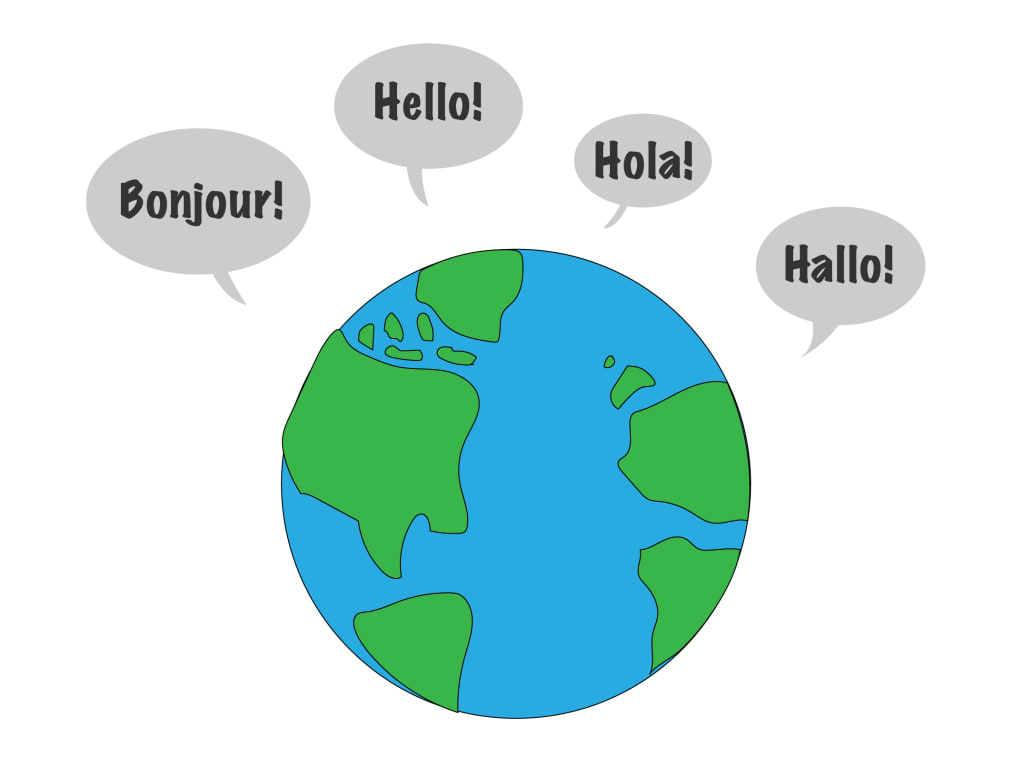It's a Bilingual World
Immersion Uncovered, What It's like Growing up Learning a Second Language

These days being bilingual isn’t something very brag-worthy. It’s something that's become quite common, at least where I grew up. My community was predominantly english speaking but was also home to a plethora of French immersion elementary schools to choose from. Although the not-so-small small town I live in had no shortage of boring sameness and calm, I was offered the good, the bad, and the ugly of the bilingual program.
I recently asked my peers what their experience was with their second language and I noticed something that really surprised me. Every single person I asked, their first response was always, “It opens up more opportunities.” Exactly those words, every single one of them, word for word. When I looked at my writing plan for this article I noticed it was the first thing I had written down. While it’s not untrue, the phrase seems to be ingrained in the mind of every French immersion student. Frankly, I think it’s very well designed as an incentive. Today’s job market is, well- not the best. As students, as you age, the pressure to choose a career path builds to terrifying points. So something that gives you more options, more time, space to breathe is a reward students will do almost anything for.
Now while the system of engraving that into our minds works well (most people agree that French immersion is worth it in the long run because of the opportunities it provides) there are so many other benefits that are never mentioned. I used to hate French. I couldn’t stand speaking, writing, or listening to it. I now love the language but regret all the years I spent so closed off to what has now become a wonderful part of my life. But surprisingly it wasn’t the idea of French improving my chances of being employed that made me change my mind. It was the music. It was the movies. It was the books. It was the plays. I was completely enthralled in this new collection of art to explore. Personally, I think that if schools just exposed their students to more of the art of the language they’re learning they might not only develop better comprehension skills but also a deeper connection and appreciation for the language.
Now whether or not you like what you’re learning the program is hard. Mind you, when I started the immersion program it was very very strict. They had many different requirements and those who failed to meet them were promptly asked to consider pursuing a normal education. Unfortunately, because some programs require the majority of classes to be taught solely in the second language, or even that the first language class isn’t included until a certain age, most immersion students struggle with their first language because it was never prioritized. This can make high school, where grammar is expected to be perfect in the first language, a notable challenge. No one expects to be worse at their first language, one they speak in their everyday lives. It can be hard to catch up on something you think you’re good at.
One of the more minor but still aggravating annoyances in school is the spotty translations in science, history, and other textbooks. Most non-language focused textbooks have confusing wording already, mix that with awful translations and learning becomes near impossible. I once had to borrow my friend's english science textbook because I genuinely couldn't understand a thing my French copy was trying to communicate.
Now the level of education received depends on the school. Even though this is true no matter the type of education, immersion tends to differ drastically more than a normal education. For example, when I got to high school I met immersion students who had never even heard of key grammar conventions that we’d learned when we were eleven years old.
Along with academic hardships, social challenges can also arise through an immersion program. You tend to associate exclusively with other immersion students. Even if you’re in a school that isn’t just French immersion kids most of your classes will be in French. Even the ones in english don’t always have an abundance of non-immersion kids, due to scheduling. Easier to keep everyone together.
Now if you’re reading this article and I’ve just convinced you not to enroll your child into immersion, think again. My ability to understand and communicate in two languages is something I wouldn’t give up for the world. I feel safer as a potential employee and I feel more connected with my family and the world. Now it’s a big decision to have to make for your child but honestly starting to learn a language when you’re young and having it be part of your school work makes the whole processes easier. You don’t have to worry about a lack of motivation resulting in giving up, because it’s part of school work. Not to mention they’ll be much more receptive to any weird conventions the language might offer, as young children tend not to have any prejudices.
In conclusion, the immersion program is far from perfect and offers no shortage of hurdles. But in the end, it's something I hold dear to me and use every day. It's all worth it and I now love every second of it.
About the Creator
Enjoyed the story? Support the Creator.
Subscribe for free to receive all their stories in your feed. You could also pledge your support or give them a one-off tip, letting them know you appreciate their work.






Comments
There are no comments for this story
Be the first to respond and start the conversation.